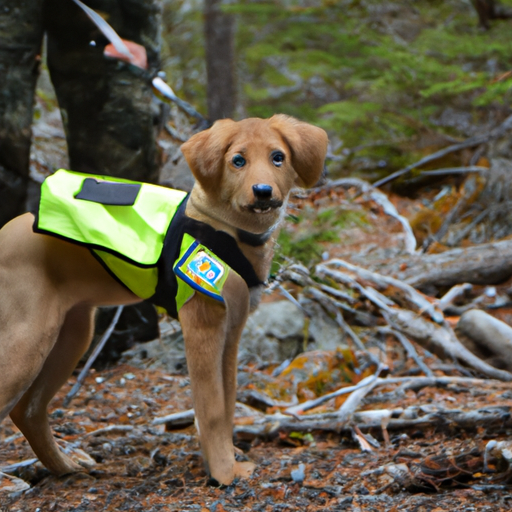Training a puppy for search and rescue (SAR) is not only an emotionally rewarding endeavor, but also a significant contribution to your community. Your puppy’s innate sense of smell and natural instinct to hunt can be harnessed to save lives and bring closure to distressed families.
1. Understanding the Basics of Search and Rescue Dogs
You need to understand that not all dogs are suitable for this type of work. Certain breeds excel in SAR, such as German Shepherds, Labrador Retrievers, and Border Collies, due to their intelligence, endurance and strong sense of smell. However, the dog’s character and temperament are also important. SAR dogs should be confident, energetic, and responsive to commands.
A typical SAR training curriculum includes:
- Obedience Training
- Socialization
- Conditioning and Physical Fitness
- Search and Rescue Skills
2. Puppy Selection and Early Training
When choosing a puppy for SAR training, look for the following characteristics:
- Alertness
- Curiosity
- Confidence
- A willingness to retrieve objects
- A strong desire to play
The table below provides a summary of key traits to look for:
| Trait | Description |
|---|---|
| Alertness | The puppy should be aware of their surroundings and quick to respond to stimuli. |
| Curiosity | The puppy should be eager to explore their environment. |
| Confidence | The puppy should not be overly timid or fearful. |
| Retrieval | The puppy should show an interest in retrieving objects, a precursor to locating and indicating found subjects. |
| Playfulness | The puppy should have a strong desire to play, as play drive is used in training. |
Training should start as soon as the puppy has settled into their new home. Begin with basic obedience training, using positive reinforcement techniques.
3. Socialization and Conditioning
Your puppy should be exposed to various environments, people, and animals to help them become comfortable in diverse settings. This could include:
- Visiting different types of terrain: forests, fields, water bodies, etc.
- Encountering different animals: other dogs, cats, livestock, etc.
- Meeting people of different ages, sizes, and races.
Physical conditioning is equally important. Regular exercise will help your puppy develop the stamina required for SAR work. This could include activities such as:
- Regular walks
- Playing fetch
- Swimming
- Agility training
4. Search and Rescue Skills Training
As your puppy grows and masters basic obedience and socialization, you can begin to introduce SAR specific skills. This includes:
- Tracking: Your dog should be able to follow a human scent trail. Start with simple trails and gradually increase complexity.
- Air Scenting: This is the ability to locate a human scent in the air, rather than following a trail.
- Indication: Your dog should be able to communicate to you when they have located a subject.
These skills are usually taught using play and reward-based methods. For example, having the puppy find a “missing” person who will then play with the puppy and give them a toy or treat.
5. Joining a SAR Group
Once your puppy has developed a solid skill set, consider joining a SAR group. This will provide opportunities for advanced training, certification, and actual field experience.
FAQ
Q: At what age can I start training my puppy for SAR?
A: You can start basic training (obedience, socialization) as soon as your puppy is settled in your home, typically around 8-12 weeks of age. SAR specific skills are usually introduced when the puppy is a bit older and has mastered the basics.
Q: Can any breed of dog be trained for SAR?
A: While some breeds are more suited to SAR, the individual dog’s temperament, drive, and physical capabilities are more important than breed.
Q: How long does it take to train a SAR dog?
A: It typically takes 1-2 years of regular, consistent training to prepare a dog for SAR work.
Q: Can I train a SAR dog on my own?
A: While you can do much of the early training on your own, joining a SAR group is recommended for advanced training and certification.
Q: How much time should I commit to training my SAR puppy?
A: Training a SAR puppy is a significant time commitment. You should be prepared to dedicate several hours each week, plus additional time for physical conditioning and socialization.
In conclusion, training a puppy for search and rescue is a rewarding journey that requires dedication, patience, and commitment. But the result is a highly trained companion that can make a real difference in your community.



